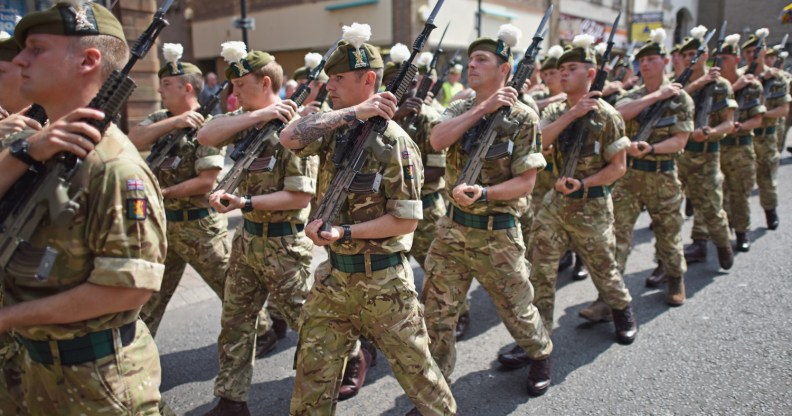The first British female soldier to serve on the front line is transgender

A transgender soldier has become the first woman to serve on the front line of the British Army.
Chloe Allen, 24, joined the army in 2012 as a man but started her transition this month, beginning hormone therapy.

Allen, who has now officially changed her name, thought she would have to leave her post in the First Battalion Scots Guards because of the restrictions on females serving on the front line.
However, after talking to a carers officer she was told she could stay in her role as a rifleman and armoured truck driver.
Many of the restrictions on women are set due to physical limitations, with front line soldiers being expected to work relentlessly and carry weights of up to 80kg on a daily basis.
Some of these limitations were lifted in July this year, as rules which banned women from Ground Close Combat units were removed. However, many did not expect the first female infantry man to be recruited until 2018.
Allen, who is from Cumbria, told the Sun newspaper that she felt relieved to openly talk about her feelings and identity.
She said: “It’s a great honour to make history. I’m just looked at as a normal person.”
The soldier would love to “inspire people to come out and be themselves.”
She added: “As much as it’s a big bad world, it’s not as bad as people think and it’s easier when you’ve got your mates and your bosses behind you.”
“It’s brilliant, it’s amazing, and for me to still be serving as an infantryman is even better.”
Last year PinkNews spoke to Army Chief Andrew Gregory about trans people serving on the front line.
The Chief of Defence Personnel is in charge of diversity and inclusivity in the armed forces.
Gregory believed army recruiters needed to “tap into all sections of society” to get the people needed for the army.
When asked about trans inclusion Gregory was unsure of what the future would hold.
Gregory said: “We do not yet have any female transgender people serving in the infantry. We haven’t had to address it because we haven’t had the issue come up.”
“It would be a very interesting test case if it did come up. If somebody – birth gender male who physically has all the physical strength and durability but had transitioned, they might well be able.”
“What we continue to do as we better understand these things is to look at our policy. That’s my response – to make sure as far as possible they are inclusive.”
“Now are we perfect? No. Do we still have pockets of homophobia? Yes, I’m afraid we do. Are we trying to address it? Yes.”

